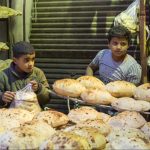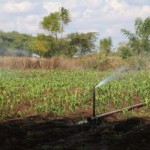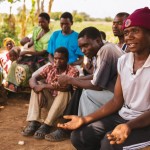Abstract: Weather related shocks lead to pervasive welfare outcomes. Using prior information from a rapid post-disaster needs assessment and a social accounting matrix for Malawi, the author assesses distributional impacts and resilience enhancing path... Source: IFPRI Malawi: Malawi Strategy Support Program
Working Paper 37: The Short-term Impacts of COVID-19 on the Malawian Economy, 2020 – 2021 – A SAM multiplier modeling analysis
This working paper extends and updates the initial results of modeling undertaken by the International Food Policy Research Institute to assess the short-run impacts of COVID-19 control measures on the Malawian economy. Source: IFPRI Malawi: Malawi Strategy Support Program
What’s the future of food subsidies in Egypt?
Hoda El-Enbaby and Clemens Breisinger - IFPRI
In Egypt’s current context of wide-ranging economic reforms, there is growing momentum to improve the longstanding Tamween food subsidy system. Tamween’s ration cards benefit around 70 million people, while the bread subsidy benefits around 83 million people, and together they make up about 6 percent of the government’s budget. During a workshop organized by the World Bank under the auspices of the Ministry of Supply and Internal Trade (MoSIT), on May 20th, 2019, Marina Wes (World Bank Country Director for Egypt, Yemen and Djibouti) emphasized the potential expected gains of reforming the subsidy program, and the importance of learning from other countries while contextualizing to Egypt-specific conditions. Source: IFPRI Egypt Country Office
Why irrigation is key to feeding Africa south of the Sahara’s growing population
This post is cross posted from the IFPRI website and was originally written by Claudia Ringler, Deputy Director of IFPRI's Environment and Production Technology Division (EPTD). The post first appeared in African Leadership Magazine. Can Africa south of the Sahara feed itself? This question has been asked for decades, but no satisfying answer has yet been >> Read more Source: Malawi Strategy Support Program
Malawi’s changing employment landscape: Some implications for youth and economic growth
A team of IFPRI researchers has been exploring whether Malawi’s labor force and landscape has been shifting out of its traditional subsistence agriculture sector and into the industry and services sectors in recent years, as well as the role that youth might play in these changes. The study assesses which factors, if any, impact individuals’ >> Read more Source: Malawi Strategy Support Program



